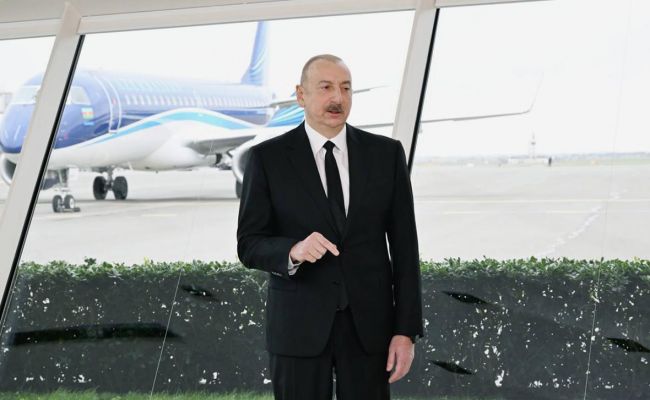
Aliyev sets conditions for Russia: Air incident with unpleasant political context
Though the relationship between Russia and Azerbaijan has been characterized as strategic, recent events have revealed a growing tension, often initiated by the Azerbaijani side. As EADaily writes, following a tragic incident on Dec. 25 involving an Azerbaijan Airlines (AZAL) flight from Baku to Grozny—which crashed during an emergency landing in Aktau, Kazakhstan—the leadership of the South Caucasian republic has made unexpected and firm statements directed at its strategic partner.
Notably, Aliyev has drawn final conclusions even before the investigation, which was initiated immediately after the tragedy. Baku’s main complaint is that the Russian side imposed restrictions on air transport over the capital of Chechnya only after the passenger plane was “hit.” It is noteworthy that the aircraft carried not only Azerbaijani citizens but also Russians, Kazakhs, and nationals from other countries. As noted, Aliyev’s ambitious and largely ultimatum-like tone also recalls that, not long ago, Russia suffered human losses and considerable material and moral damage due to the actions of Azerbaijani representatives. On Nov. 8, 2020, just hours before the cessation of the second Nagorno-Karabakh war, a Russian Mi-24 helicopter was shot down, resulting in the deaths of two Russian servicemen and injuries to another. In September 2023, during the complete displacement of the Armenian population from Artsakh, six Russian soldiers were killed. Like in the autumn of 2020, the Azerbaijani side accepted its guilt and officially apologized to its Russian counterparts. However, Moscow did not raise the issue of compensation for the material and moral damages it incurred, nor did it do so in as categorical a manner as the Azerbaijani leadership is currently exhibiting.
Many of Aliyev’s statements and actions regarding the country’s foreign policy seem to be aimed at the domestic audience as the primary addressee. Aliyev is trying to position himself as a “strong leader” in the eyes of Azerbaijani citizens, one that even global powers must reckon with. Whether its bellicose remarks directed at Armenia, speeches aimed at France and/or the United States, or criticism directed at the European Union, the Azerbaijani president is striving to maintain the high standard of a “brave and just” political figure. Another theory suggests that Aliyev has been significantly influenced by the swift downfall of Syrian President Bashar al-Assad, who also “inherited power” from his father. Furthermore, it is believed that, considering the “Syrian precedent,” the Azerbaijani leader has drawn conclusions about Russia’s “weakness,” thinking it can no longer protect its allies in the Middle East and other regions. Thus, interpreting the behavior of Azerbaijan’s top political leadership through this lens, it is trying to “sell the incident with the passenger plane as dearly as possible” in exchange for certain concessions from Russia.


